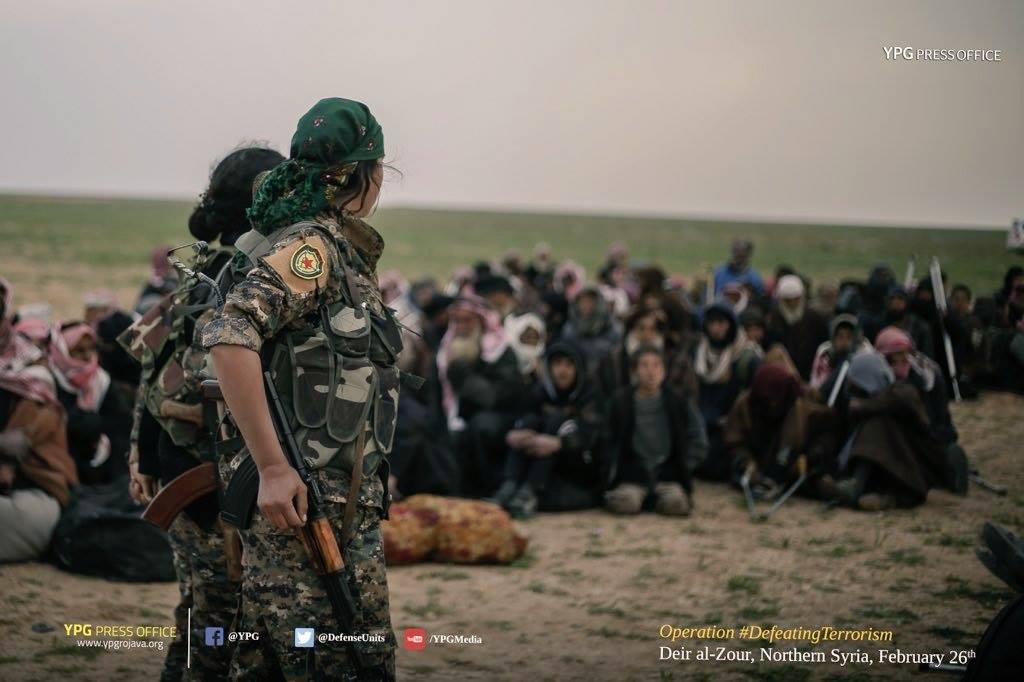Kurdish communities around the world – including in Australia – have been marching to raise awareness for the plight of the people caught in the Turkish attacks on northeastern Syria after Donald Trump’s controversial withdrawal of US troops.
At a recent rally in Melbourne, Heval Herki, a spokesman for the Federation for a Democratic Kurdish Society, spoke of the political progress that had been made by Kurdish people in the Kurdish Autonomous Zone, or Rojava, in recent years.
“They call Rojava, the ‘Garden of Humanity’, it could be an example to everywhere,” Mr Herki said.
“It could stop a lot of bloodshed and conflict, it could generate richer democracy in the region, that’s what the Turkish government are afraid of, they don’t want to see that in the region.”

“For four years 12,000 to 15,000 [Kurdish] men and women have lost their lives and built a beautiful, empowered, democratic, liberal, inclusive society. How could you abandon them and leave them to jihadist and Erdogan mercy?” he said.
“Rojava has never had conflict with the Turkish government.”
The Kurds are one of the largest stateless ethnic groups in the world. When the European colonial powers were dividing up the Middle East after the end of the First World War, the Kurds were not given their own state and have been fighting for sovereignty ever since.
There is no official census on population, but estimates put their numbers between 20 and 40 million people worldwide, with populations concentrated in Syria, Iraq, Iran and Turkey.
This contiguous area throughout these four countries has been the traditional homeland of the Kurds for thousands of years and is known as Kurdistan, though this title has no official recognition by international bodies, such as the UN.
Kurdish people are often repressed in these countries, leading to paramilitary groups, such as the PKK (Kurdish Workers Party) which emerged in Turkey in the 1970s, being established to fight for Kurdish rights and statehood.
This group has been declared a terrorist organisation by Turkey and the US, but is separate from the SDF (Syrian Democratic Forces) who have been fighting ISIS alongside the US-led NATO Coalition and who established the autonomous zone of Rojava, in north-eastern Syria.
Map of attacks on North and East Syria, on October 9th 2019 made by @RojavaIC pic.twitter.com/OrIkPsHlZS
— Rojava Information Center (@RojavaIC) October 9, 2019
Being stateless, Kurdish forces have often depended on larger powers, such as the US, for safety from aggressors in the region.
Mr Herki explained how Turkey had historically targeted Kurds, in and outside of Turkey, and killed them the thousands, with little international media coverage.
“[Erdogan] doesn’t care about Turkish community, he only cares to gain and control power.” Mr Herki said. “He’s constantly attacking the Kurds. Young people in Turkey are also losing their lives. This is a tragedy”
Rojava, much like Kurdistan itself, has no official designation, but is an autonomous zone outside the control of the Syrian government, run by a Kurdish anti-capitalist government of equal ethnic representation and equal opportunity for women – which is rare globally, let alone in the Middle East.
The gender parity in Rojava extends to the SDF; the female led YPJ (Women’s Protection Unit) has been at the forefront of the fight against ISIS.
Aside from being a well-trained and practiced militia, some credit part of their success against the extremists with the belief some ISIS fighters have that if they are killed by a woman, they will not be able to enter heaven.
#Turkey is using napalm and white phosphorus on the people of #Rojava. This is not an “accusation”, it is a documented fact.https://t.co/avsdYqXFjy
— Hawzhin Azeez (@Dr_HawzhinAzeez) October 17, 2019
Mr Erdogan immediately seized the opportunity once the US troops had been withdrawn to strike Rojavan territory, including with the use of napalm, to create a buffer zone in which to refoul Syrian refugees into.
Previously, this had not been possible due to the alliance between Turkey and US, despite the relatively limited number of US troops in the region.
However, the Turkish leader has now been able to attack the region without breaking any terms of engagement, and Mr Trump being held responsible for the abandonment of one of the US’s closest allies in the war against ISIS.
Senate Majority Leader Mitch McConnell: “Kurds deserve our loyalty.” pic.twitter.com/CqHcF4f6iu
— Roll Call (@rollcall) October 16, 2019
Mr Herki urged people to realise the danger of the situation, as SDF forces leave positions guarding prisons holding thousands of ISIS fighters to head north to confront the Turkish incursion.
“This is not a Kurdish war, it’s not just affecting the Kurds, this is affecting everyone,” he said.
“By peaceful means, by democratic means, this can be stopped.”
Citing Australia’s partnership with the Kurdish people in confronting ISIS, Mr Herki appealed to Australians for their support.
“I know Australian people are a loving people, they care about liberty and freedom,” he said.
“This can be stopped.”


